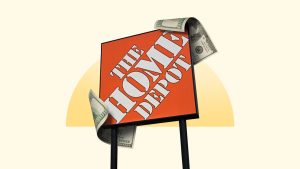Buying a new car means personalization, the latest technology and the coveted new car smell. But for the past few years, buying new has also carried record high prices. So, if buying a new car is in your future, it is wise to consider best practices before setting out to the dealer.
How to save money buying a new car: 5 strategies
The key to saving money with large purchases is preparation. It is important to research before you start car shopping. Lock in your financing by getting preapproved and budget accordingly.
With vehicle costs so high, now may also be a good time to consider leasing a car or even buying used instead of new.
Along with our experts, Brian Moody, executive editor at Autotrader, shared his advice on how to save money regardless of the macro car buying environment.
1. Research before heading to the dealership
Online resources have shifted the car-buying experience. You can preview a dealership’s stock before visiting the lot.
Moody recommends “doing the bulk of research online well before visiting a dealership in person.” His advice:
- Pay close attention to dealer incentives. Two dealerships might sell the same vehicle, but one may offer better extras like free maintenance or a 0 percent APR deal.
- Check vehicle availability in your area before going in person. Otherwise, you may be pushed to purchase a vehicle you haven’t researched.
2. Apply for loan preapproval
Loan preapproval is an important step for getting the best rate. It locks in your expected monthly cost with a potential lender. You can then shop with a firm understanding of the amount you can spend.
Shop for auto loan rates as you shop for a car. Compare lenders and don’t sign off on the first option you see.
High prices make loan preapproval essential to saving money. Moody also recommends getting preapproved with your local bank or credit union.
3. Stick to your budget
With vehicle prices hitting close to $50,000 you must use your budget as your guiding light when car shopping. While it is true that no matter the environment it is wise to stick to your budget, with prices this high there isn’t much wiggle room.
To determine how much you can afford, use an auto loan calculator to find your monthly financing cost. And don’t forget to factor in vehicle costs, like maintenance and insurance.
4. Consider leasing for the short term
Have your sights set on a certain vehicle but can’t find it on the dealer lot? Leasing can be an effective way to get behind the wheel.
“While leasing long term costs more, leasing for the short term can help a buyer get the car they want at an affordable price,” Moody says. By the time the lease ends, the economic environment will likely be different. You may be able to better afford a new car.
5. Buy a used vehicle
If you have some flexibility, buying a used vehicle instead of a new one can be a good option. “Those looking for a great deal should look at used cars,” Moody says. With such high demand for vehicles and low inventory, new car prices will remain high.
The current state of the car market
Current high vehicle prices are influenced by a number of factors, like available inventory, remaining supply chain issues and inflation. All of these impact the price you pay at the dealership. But Moody explains that the main influence right now comes down to supply versus demand.
“There are only about 1 million new cars at dealerships across the country,” Moody says. “The used car inventory is more than double that. That low supply of new cars combined with strong demand is forcing prices up.”
On top of this, moves made by the Federal Reserve make borrowing money for your new car expensive too. During the first quarter of 2021, those taking out auto loans financed an average of $35,383. That’s far less than the average of $41,068 car owners financed in the third quarter of 2024, according to Experian.
With the combination of high interest rates and expensive vehicles, you can expect to spend more money on a new vehicle.
Will vehicle prices return to normal?
It’s a complicated question. But, according to Moody, new inventory should begin to normalize by spring of 2023.
“There are many new models on the way and some supply chain issues will be worked out by then,” Moody says.
Until then, you’ll need to be prepared to do more research than normal. You might not find your dream car. But just because there’s a limited inventory doesn’t mean you can’t drive off the lot happy.
The bottom line
The lesson is this, if you have the flexibility to wait on buying a new car, it might be worth saving money. But if you’re like most Americans, waiting may not be an option. Instead, enter car buying with a bit more research and prepare to spend a bit more even if you drive off with a good deal.
Read the full article here









